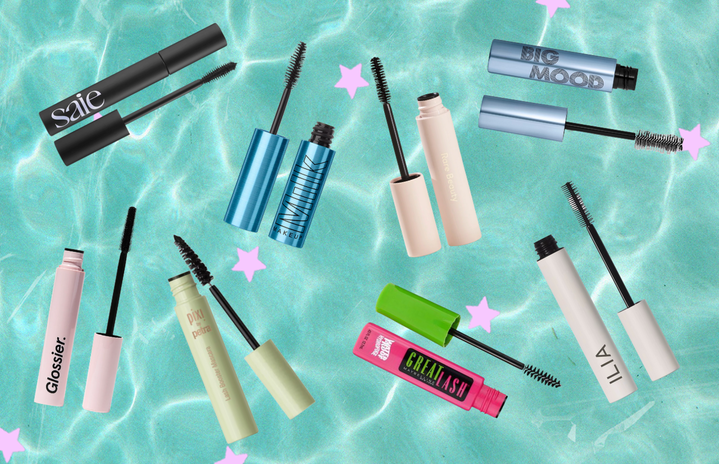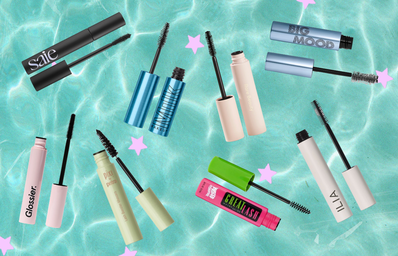“#Mascaragate”, as online commentators have dubbed it, has entered the viral newsfeed recently. The story emerged when makeup influencer Mikayla Nogueria released a collaborative post with cosmetics brand L’Oreal, advertising their Telescopic Lift Mascara. This seemingly innocent post sparked a wave of commenters, claiming that Mikayla had used false eyelashes to create the impression that the mascara had significantly increased her lash volume. Though Nogueira maintained that the accusations were false, many continued to speculate and voice their doubts.
Nogueria’s post sparked controversy, with some online users defending the influencer saying that if she had in fact used false eyelashes for the post, this was not an uncommon practice within the makeup industry. Cosmetic brands will sometimes use false eyelashes in mascara advertisements, but that is legally disclosed within the ad’s fine print.
Underlying this scandal is a much deeper issue about when Tiktokers disclose their sponsorships, and how careful they are about informing their audience surrounding specific products. We might ask if their opinions can really be trusted, when they have financial incentive to promote and share an item?
Whether the accusations against Mikayla are true or not, her actions have provoked conversation around transparency in social media and online partnerships.
So what are the rules for TikTok creators, and where did Mikayla go wrong?
TikTok lays out some guidelines and ground rules for users on their platform, including the branded content that influencers may or may not post. Due to the platform’s regulations, creators are prohibited from promoting several products on the application; including content featuring alcohol, tobacco or banned substances. In Canada, the rules extend to banning the advertisement of baby food and weight loss supplements (yes, that includes so called flat tummy or “Tea-tox” teas).
To clarify, “branded content” doesn’t exclusively cover situations in which an influencer is paid money for a promoted post, if the influencer has a relationship with a brand, for example, a partnership agreement or affiliate link, or if they receive free products or goods in exchange for posting, this still counts as “branded content”. Even if you didn’t agree to post for money, if you’re profiting in some way, that’s branded! There is no such thing as a free lunch or a free pr box.
TikTok also specifies that users must ensure that it is made “sufficiently clear” to viewers that their branded content is indeed sponsored. As a general guideline this seems to be about as clear as mud. It’s not surprising that so many influencers trip up concerning the nitty-gritty of the rules, what does and doesn’t constitute disclosure, and what is a clear enough disclosure to satisfy advertising regulators.
However the FDA, and the Canadian Ad Standards Agency also reinforce messages concerning branded content.
The CSA recommends one golden rule to influencers, “when in doubt, spell it out”. Failure to disclose a material connection is against the rules – that means any contract, benefit or incentive you have for posting, including if you received products or services free of charge must be disclosed. The disclosure, says the CSA, should be easy for viewers to find, no burying among hashtags and no ambiguous disclosures(i.e. the influencer should use commonplace labels such as ‘#ad’ or ‘#sponsored)!
Makayla isn’t the only one guilty of skirting the rules if she did indeed wear fake eyelashes, as her defenders have pointed out. In addition to the “lash” issue, she came under fire for not labeling her sponsored post clearly enough. A top commenter even asked, “Is this an ad? I don’t see the disclosure, only a tiny ‘L’Oréal partner’ label at the very beginning that disappears quickly so I’m not sure.” Tiktok also says their content must be toggled with branded content under the platform’s guidelines.
What about de-influencers?
Some are taking the opposite route, with the tag “de-influencing” increasing in searches and frequency, according to Today, the tag has amassed nearly 76 million views. The tag includes content designed to warn consumers against purchasing products, exposing information about creators or production that may discourage product sales, or negatively reviewing products in an effort to drive sales downward.
The Wall-Street Journal say that this trend has emerged from consumer fatigue and “growing backlash against overconsumption.” With rising inflation and the environmental costs of production weighing heavier than ever; it’s not surprising that growing numbers of consumers want to purchase less.
However, there may be caveats-this trend still relies on an implied trust between a tik-toker or social media figure and their audience. It may even come with incentives for those creating #deinfluencing posts. For example, it could build up a positive reputation for a tiktoker as being authentic and providing reliable advice- a reputation future partner brands may want to capitalize on. In the most cynical cases, de-influencers could even have relationships with competing products or brands, making it indirectly beneficial to detract from other products.
So what’s the future for beauty influencing?
Given the immense popularity of beauty reviews, the mass amount of “apologies” and bounce-backs after seeming wrong-doing, including earlier missteps by famous online figures including Jaclyn Hill and Tati Westbrook, I think it’s doubtful that this will be the end of Nogueria’s career. If those earlier cases serve as any sort of precedent, she could retain a huge following on the platform.
Many have defended Nogueria’s actions, including actress and influencer Mads Lewis. In a now deleted post, Lewis claimed that exaggerating results in sponsored content is commonplace, saying “everyone does it,” and adding, “even if she did put false eyelashes on, why does that matter?”.
Still, some believe Mikayla’s reputation has now taken a hit which will be hard to recover from. She herself, in a Vogue interview, highlighted her individual “authenticity” as a key reason for her astronomic rise in followers. It seems, this “honest” persona is now being questioned.
Individual consequences aside, the controversy really points to a broader movement in the beauty space. UK publication Harper’s Bazaar highlighted the growing trend for transparency in 2023. Avon’s chief marketing officer also noted this swing in consumer demand,for honesty and efficacy – whether that means comprehensive ingredient lists or honest explanations of product results.
It seems that even if Nogueira comes out of this backlash relatively unscathed, influencers and brands should expect to be held accountable for their claims!


